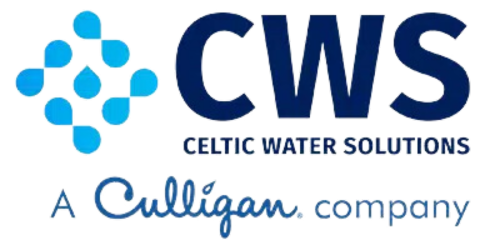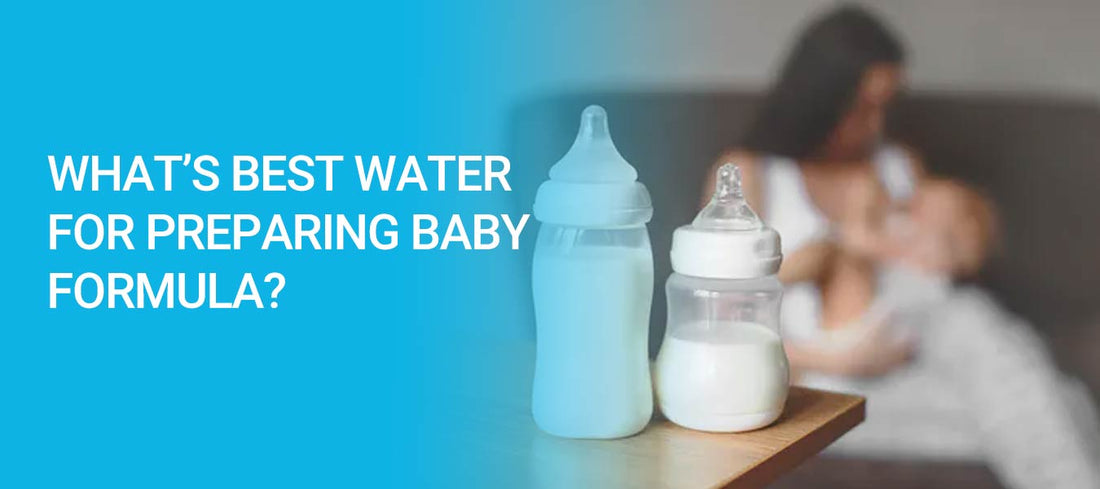All water essentially looks the same, but water sources are not created equal. It's not just a matter of taste—it's also true in terms of drinking water safety. Knowing what water to use in baby formula is crucial to ensure your little one stays healthy. Here's what parents need to know to ensure the water they use to make baby formula is safe.
Why is it important to boil water for baby bottles?
Babies have immature immune systems so they aren’t strong enough to fight off a range of infections. One important way to support them in staying healthy is to reduce the chances of their getting sick in the first place. Therefore there are two reasons to boil water: a) Neither tap water nor bottled water is sterile straight from the source. b) Powdered infant formula milk is not sterile. Even though tins and packets of milk powder are sealed, they can still contain bacteria. By boiling the water for 1-3 minutes you can be sure that bacteria are killed. Adding the boiled water to the formula also means that milk formula will be safer to consume. Boiling water does not remove other contaminants such as lead, nitrates, microplastics or substances often added to the water including chlorine, chloramine or fluoride.
Choosing Water To Make Baby’s Formula
1. Tap Water
In most places, tap water will be safe for you and your baby. It is critical to remember that tap water usually contains added fluoride to prevent tooth decay. Too much fluoride can lead to dental fluorosis in children, which causes white streaks on their teeth. Using tap water helps protect your little one’s budding teeth because it has added fluoride. But, because babies are tiny, they can sometimes get too much fluoride if you use tap water all the time. Boiling tap water doesn’t change how much fluoride is in it.
2. Well Water
Many homeowners in Ireland rely on private wells for their drinking water needs. However, these wells are not regulated by authorities which means they may have contaminants that may not be good for your baby’s health. Well water is to be used with caution when mixing baby formula, and human consumption at large. Wells can contain toxins or bacteria not safe for humans to drink. If your home uses well water, you must test your water before drinking it or using it for baby formula. Don’t simply boil it and assume it’s safe for your baby. Most well water contains minerals such as nitrates and iron, which you can’t boil away. Boiling the water may even increase the concentration of these minerals. You would need a specialist well filtration system to treat your well water.
3. Bottled Water
If you are in a situation where you do not want to use tap water (whether at home or in public) the other option is to buy bottled water. It’s especially helpful when travelling and unfamiliar with the safety of the local water supply. However, since bottled water is not usually sterile, it is good to take precautions like boiling it and letting it cool before using it to make your baby's formula. The biggest drawback of using bottled water is the price. It’s quite expensive, and it may not be worth the trouble.
4. Filtered Water
Using filtered tap water to make infant formula is an easy, affordable way to give your baby safe drinking water for formula. Just make sure you choose a quality water filter. RO systems use a multi-stage filtration process that removes most contaminants found in tap water such as chlorine, fluoride, heavy metals, organic compounds and much more to deliver great quality water. When using filtered water, make sure not to keep it for too long as the chlorine added to keep water safe from microorganisms is removed during this process. And boil the water for the first 6 months even if you use a water filter. An annual service would keep your RO system keep delivering safe and fresh filtered water for years to come without any trouble.
Other considerations
You can boil water in advance so that it's ready for when your baby is hungry. How you handle and store the water is just as important as getting it ready by boiling it. The first step is to always wash your hands before you touch anything. Use sterile glass jars or jugs with lids to store boiled water. You can sterilise them by pouring boiling water into them and rinsing them out with boiled water. Don’t use tap water to rinse them out; they won’t be sterile anymore if you do! In the same way, remember to sterilise your baby’s bottles after you’ve washed and rinsed them with tap water. If you live in a hard water area and use a water softener in your home, we recommend do not use soft water to prepare baby bottles due to its high salt content. When we install a water softener, we include a natural water supply drinking water tap in the package. That means you will have a separate tap that provides unsoftened water to drink. You can safely use this water supply for making up the baby formula and feeds.
Conclusion
When preparing your baby’s formula, whether with bottled water, tap water, or well water, always ensure that it is safe for consumption. Untreated well or tap water isn’t recommended as they can contain too many minerals and possible contaminants. Bottled water, on the other hand, is an expensive and not so safe option as most bottled water companies use tap water to fill those bottles. The solution is using filtered water from a reverse osmosis system as it does not contain any harmful chemicals. We are a leading name in the water filtration industry in Ireland and have been serving our customers for nearly 20 years now. We offer a range of reverse osmosis systems on our website to suit every home and budget. Talk to our sales team to discuss the best option for you.

